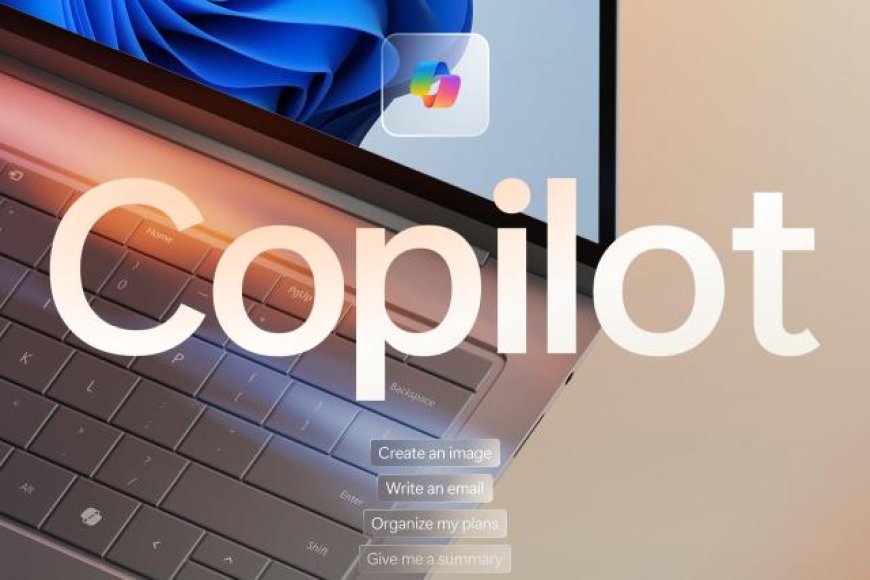Microsoft Unveils Major Changes: Copilot AI Key to Transform Windows PCs

Microsoft is gearing up for a significant transformation in its Windows PCs with the introduction of a Copilot assistant key, set to replace the traditional Windows key on keyboards. This strategic move is part of Microsoft's broader vision to integrate artificial intelligence (AI) as a foundational element across Windows PCs and associated applications and services.
Yusuf Mehdi, Executive Vice President and Consumer Chief Marketing Officer at Microsoft, has dubbed this initiative as "the year of the AI PC," signifying the pivotal role AI will play in the Windows ecosystem. A substantial Windows 11 update, slated for later in 2024 and tentatively named "Hudson Valley," will further amplify the integration of AI functionalities.
The Copilot key, expected to replace the iconic Windows icon key on keyboards, serves as the entry point into the world of AI on PCs. Mehdi draws a parallel with the introduction of the Windows key nearly 30 years ago, emphasizing Copilot as another transformative moment in the evolution of Windows.
While the exact functionality of the Copilot key remains undisclosed, it is poised to become an essential interface for interacting with the generative AI assistant embedded in Windows 11. Mehdi hints at Copilot's role in AI-driven tasks such as writing first drafts, summarizing emails and meetings, analyzing spreadsheets, and creating presentations within Microsoft 365 applications.
The Copilot functionality, initially rolled out to enterprise customers in 2023, is expanding its reach across various Windows elements. This includes integration with File Explorer and Start, an enhanced Paint app, and an AI-powered browser within Microsoft Edge. The company envisions Copilot as a transformative force, offering a range of AI-driven experiences and applications within the Windows ecosystem.
Microsoft's strategic approach involves collaboration with silicon partners like AMD, Intel, and Qualcomm, aligning with the evolving landscape of hardware and chips that power the next generation of Windows computing devices. The integration of GPU, CPU, NPU, and cloud services is aimed at unlocking new AI experiences for Windows PC users.
As consumers get acquainted with Copilot's integration in the Windows 11 taskbar, the broader AI integration includes features like natural language search in File Explorer. This promises a more intuitive search experience, allowing users to find files based on contextual information, even without specific filenames.
With Copilot expanding beyond Windows PCs, Microsoft's AI vision extends to Android phones and Apple devices, where the Copilot app offers functionalities such as an AI chatbot, email drafting, text summarization, and text-to-image generation.
As Microsoft prepares to unveil the Hudson Valley update later this year, the AI-driven transformation is set to redefine the Windows experience, emphasizing the company's commitment to innovation and user-centric AI applications. Stay tuned for announcements at the annual Consumer Electronics Show (CES) for further details on this groundbreaking shift in the Windows ecosystem.
What's Your Reaction?
































































